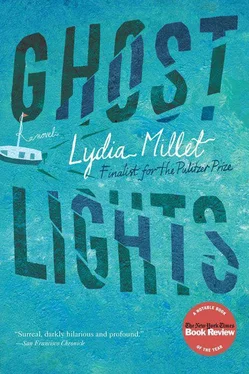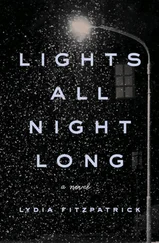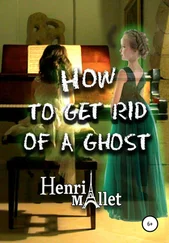Lydia Millet - Ghost Lights
Здесь есть возможность читать онлайн «Lydia Millet - Ghost Lights» весь текст электронной книги совершенно бесплатно (целиком полную версию без сокращений). В некоторых случаях можно слушать аудио, скачать через торрент в формате fb2 и присутствует краткое содержание. Издательство: W. W. Norton & Company, Жанр: Современная проза, на английском языке. Описание произведения, (предисловие) а так же отзывы посетителей доступны на портале библиотеки ЛибКат.
- Название:Ghost Lights
- Автор:
- Издательство:W. W. Norton & Company
- Жанр:
- Год:неизвестен
- ISBN:нет данных
- Рейтинг книги:5 / 5. Голосов: 1
-
Избранное:Добавить в избранное
- Отзывы:
-
Ваша оценка:
- 100
- 1
- 2
- 3
- 4
- 5
Ghost Lights: краткое содержание, описание и аннотация
Предлагаем к чтению аннотацию, описание, краткое содержание или предисловие (зависит от того, что написал сам автор книги «Ghost Lights»). Если вы не нашли необходимую информацию о книге — напишите в комментариях, мы постараемся отыскать её.
How the Dead Dream
Ghost Lights
Ghost Lights
Ghost Lights — читать онлайн бесплатно полную книгу (весь текст) целиком
Ниже представлен текст книги, разбитый по страницам. Система сохранения места последней прочитанной страницы, позволяет с удобством читать онлайн бесплатно книгу «Ghost Lights», без необходимости каждый раз заново искать на чём Вы остановились. Поставьте закладку, и сможете в любой момент перейти на страницу, на которой закончили чтение.
Интервал:
Закладка:
“It’s just a formality. Don’t worry. After you, gentlemen.”
Brady opened the door for him.
“She kept going, ‘my supernumerary nipple,’” said the lawyer. “That’s what she called it. I never forgot. ‘Supernumerary.’”
“Made it sound official,” said Brady.
“Bureaucratic,” said Cleve.
After a few minutes’ wait, with Brady and the lawyer still talking about the pool party — apparently a man had walked through a plate-glass door and been airlifted to a hospital in Mexico City — the stocky, sweat-stained man from before came out and ushered them in. It seemed to Hal that the security guard looked askance at him as they passed, as though Hal posed a security risk.
Inside they went down a brightly lit corridor and the stocky man opened the door to an interrogation room.
There was T., seated at a Formica table. At his elbow was a bottle of water.
Hal bent down and held his shoulders, then stepped back. He did not look upset.
“Are you OK? How are you holding up?”
“Fine, thank you,” said T., and smiled.
“Where were you sleeping last night?”
“We were driving for some of it. There was a rest stop. I didn’t get that much sleep.”
“Man. I’m so sorry. This is wrong, T.”
T. patted him on the arm and then looked past him, polite. “Tom Stern. Please call me T. And you are?”
Hal introduced Brady and the lawyer. On the other side of the table the stocky man arranged chairs.
“One moment,” said Jorge the stocky, and left them.
“Have they accused you of anything?” asked Hal impatiently.
“No, nothing,” said T. pleasantly.
“But so — on what grounds are they keeping you?”
“They have some questions, is what I’ve been told. They want to know what happened. Get it into the record.”
“You haven’t been interviewed officially, I assume,” said the lawyer.
“No one’s really asked me anything,” said T. “We were in a car, then a transport van with a couple of prisoners, then we stopped at a rest stop. . I’m tired. But nothing’s happened.”
“They’ll be taping this now, then,” said the lawyer. “Wish we had more time to prepare. Key is, you don’t want to disclose more than the basic facts. You ever been deposed?”
T. shook his head.
“You have nothing to hide here, I’m sure. But keep it brief. We want to avoid even the suggestion there’s anything you could have done to stop this man from dying.”
“If I had EMT training, maybe. .,” said T. pensively.
“That kind of speculation is exactly what we don’t want. Just the basic facts. No emotional statements, for instance. You think you can do that?”
Then Jorge was back, and a woman with glossy lipstick and a tape recorder.
“Excuse me,” said Jorge. “This is our stenographer. Could she—?”
There was little room. Hal saw he was motioning to the chair beside Hal, in which he had not yet sat down.
“Sure, sure,” said Hal, but then, in the ensuing arrangement of persons as they settled, was left with nowhere to sit. He leaned against the wall, arms folded.
“You can just tell us what happened, your version of the events,” said Jorge, and T. nodded. Jorge narrated some protocol in the direction of the tape recorder — who was present, the date, the date of the guide’s demise. T. began to tell his story, which Hal had heard before, in an even, pleasant tone. It was as though he was unaffected by stress.
Hal himself was sweating. There was no air in the room, no windows and no air. Not even a ventilation grid, he saw, looking around. Maybe if he could crack the door open? Even a few inches would offer relief. But then there would be background noise, he guessed. Ambient sound on the tape recorder, compromising its integrity.
He was wet beneath the arms. Disgusting. And the ceiling, it seemed, was perilously low, pocked with little pinpricks in what looked like white cardboard.
Yet none of the others seemed to be noticing. They were not bothered by any of it. Except for Jorge they were not even perspiring, as far as he could see. He felt a tenuous bond with Jorge. They were the only ones with armpit stains.
Possibly he was slightly claustrophobic. Before his venture into this small, subtropical and foreign country, he had never thought of himself as a wimp. Yet it seemed he was often in discomfort since he got here, uncomfortable, exhausted, or alarmed. He had turned out to be a hothouse flower — a hothouse flower from the first world that wilted in the third. An American hothouse flower, adapted only to the United States. And within the U.S. only to Southern California, or more restricted still — adapted to the unchanging mildness of West L.A., where the worst weather you encountered was gray.
“By the time I dragged myself back down to the coast,” T. was saying, in his low, well-modulated voice, “I was in a state of exhaustion. My body weight had dropped. I went to my foreman, Marlo. Later he said I was starving. But my own worry had been thirst, you know, potable water. The river water I’d been avoiding as much as I could. I was afraid of illness. Possibly giardia. Delonn had told me there were cattle upstream. So I used the filter, but I didn’t trust myself. I was afraid I was using it wrong. By the time I saw the tourists — it was a family taking pictures of a toucan — I wasn’t thinking clearly. And the recovery was slow. This is what accounts for my delay in contacting Delonn’s family. I regret. .”
The lawyer shook his head in a small, tight movement, but T. ignored him. Neither Jorge nor the stenographer, who seemed to be doing nothing other than keeping one hand on the tape recorder, noticed either.
“I regret that my recovery prevented me from contacting them earlier,” he went on. “I do think Delonn’s problem on the boat, the possible arm pain and mild distress he appeared to be having as we came up the river, were an early warning signal.”
The lawyer shook his head again, but T. was not looking at him.
“But he chose not to turn back. At that time, as I said, I asked him if he was OK. He was an older man, but he seemed to be in good physical shape. He was active. My recollection is, he said it was probably heartburn. He had no interest in turning back, so he dismissed my concern.”
The lawyer nodded, as though to affirm: good. Good. Blame the victim.
“Mr. Stern. What is your opinion,” asked Jorge, tipping his chair back onto two legs, “about what happened to the body? Go over that one more time, please.”
T. was drinking water from his bottle. He recapped it and set it down carefully.
“A couple of days after I abandoned the boat,” he went on, “I was at my campsite at night. I saw the boat drifting downriver. I ran into the river and tried to climb over the side, but I was too slow. I slipped off and the boat kept going. But while I was still hanging on I saw the inside of the boat, and the body wasn’t there. The tent, you know, that it was wrapped in? — was that bright yellow of raincoats. Even at night I would have been able to make it out. But there was nothing.”
“You’re sure?”
“He already said so,” said the lawyer.
“My guess was—”
“You don’t have to guess,” said the lawyer. “That’s all you saw.”
Hal felt heat rush to his face, and a suffocation. He closed his eyes and lights pricked at the darkness.
“Excuse me,” he said.
The hallway was slightly less stifling but not enough, and he kept going past the security guard and the reception desk, out the front door. The sky had clouded over and a cool breeze was up, and he relaxed instantly.
The guard would probably not let him back in by himself, but he was indifferent. The lawyer was his watchdog. The lawyer was being a lawyer. There was nothing Hal could do to help, past the fact of having brought him in, Brady and him. He was unsure of their competence, but what could he do? Nothing. These were guys who spent their spare time discussing women with extra nipples.
Читать дальшеИнтервал:
Закладка:
Похожие книги на «Ghost Lights»
Представляем Вашему вниманию похожие книги на «Ghost Lights» списком для выбора. Мы отобрали схожую по названию и смыслу литературу в надежде предоставить читателям больше вариантов отыскать новые, интересные, ещё непрочитанные произведения.
Обсуждение, отзывы о книге «Ghost Lights» и просто собственные мнения читателей. Оставьте ваши комментарии, напишите, что Вы думаете о произведении, его смысле или главных героях. Укажите что конкретно понравилось, а что нет, и почему Вы так считаете.












